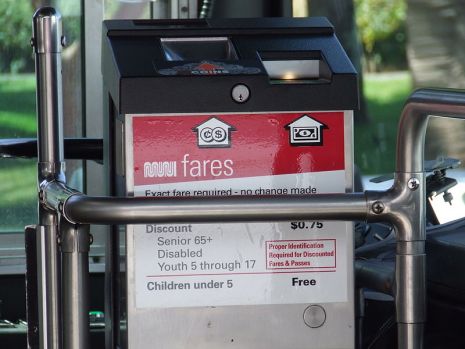- Fare-capping gives transit riders who can't afford to buy long-term passes access to the same low fares for unlimited rides without having to pay upfront. It could be a tool to make transit more equitable and lure back riders lost during the pandemic. (Next City)
- Railway Age breaks down how Amtrak could spend $58 billion earmarked for intercity rail in the infrastructure act.
- Micromobility companies like Bird and Lyft — private companies that are worth billions — want subsidies from taxpayers so they can expand. (Smart Cities Dive)
- City officials and cyclists all over the country are divided on whether e-scooters belong on bike paths. (Wired)
- Denver is now over halfway done with a five-year project to build 125 miles of protected bike lanes. (Denver Post)
- One Florida school system is so hard up for bus drivers that it's considering hiring Uber or paying parents to drive their kids to school. (WFLA)
- After near-record number of traffic deaths in 2021, San Jose drivers have already killed four people this year. (Spotlight)
- Residents are growing more accepting of Detroit bike lanes and starting to use them more, although concerns about gentrification remain. (WDET)
- A private group has raised $10 million in donations for a 34-mile urban trail around Cincinnati. (Spectrum News)
- After a failed attempt with Zagster, Wilmington, North Carolina, is restarting talks to bring in a bike-share company. (Port City Daily)
- Quebec decided that pranking a bunch of people into watching themselves get run over to deter jaywalking is a better use of government funding than, you know, trying to get drivers to stop running people over. (YouTube)
Stay in touch
Sign up for our free newsletter
More from Streetsblog USA
Friday Video: The London Neighborhood Where Bikes Outnumber Cars
...and how they got to that impressive milestone.
Friday’s Headlines Battle Galactus
Like the Marvel supervillain, U.S. interstate highway system seems to eat up everything in his path. A new book explores how to stop it.
New Report Shows Pedestrian Fatalities Drop — But Experts Say Not Enough
The Governors Highway Safety Association report showed a 4 percent drop in the number of pedestrian deaths last year, putting a slow on a dangerous trend — but advocates say the drop isn't nearly big enough.
Talking Headways Podcast: Localities Subsidize the State DOT
Adie Tomer of Brookings on how to improve regional coordination around infrastructure.
Five of the Ugliest Transportation Policies In the ‘Big, Beautiful’ Bill
Here's a rundown of some of the transportation provisions in the Republicans' reconciliation package, and what they might mean for your community.
Viva La Thursday’s Headlines
Why is French transit ridership up 10 percent since before the pandemic, while American transit ridership is down 23 percent?






